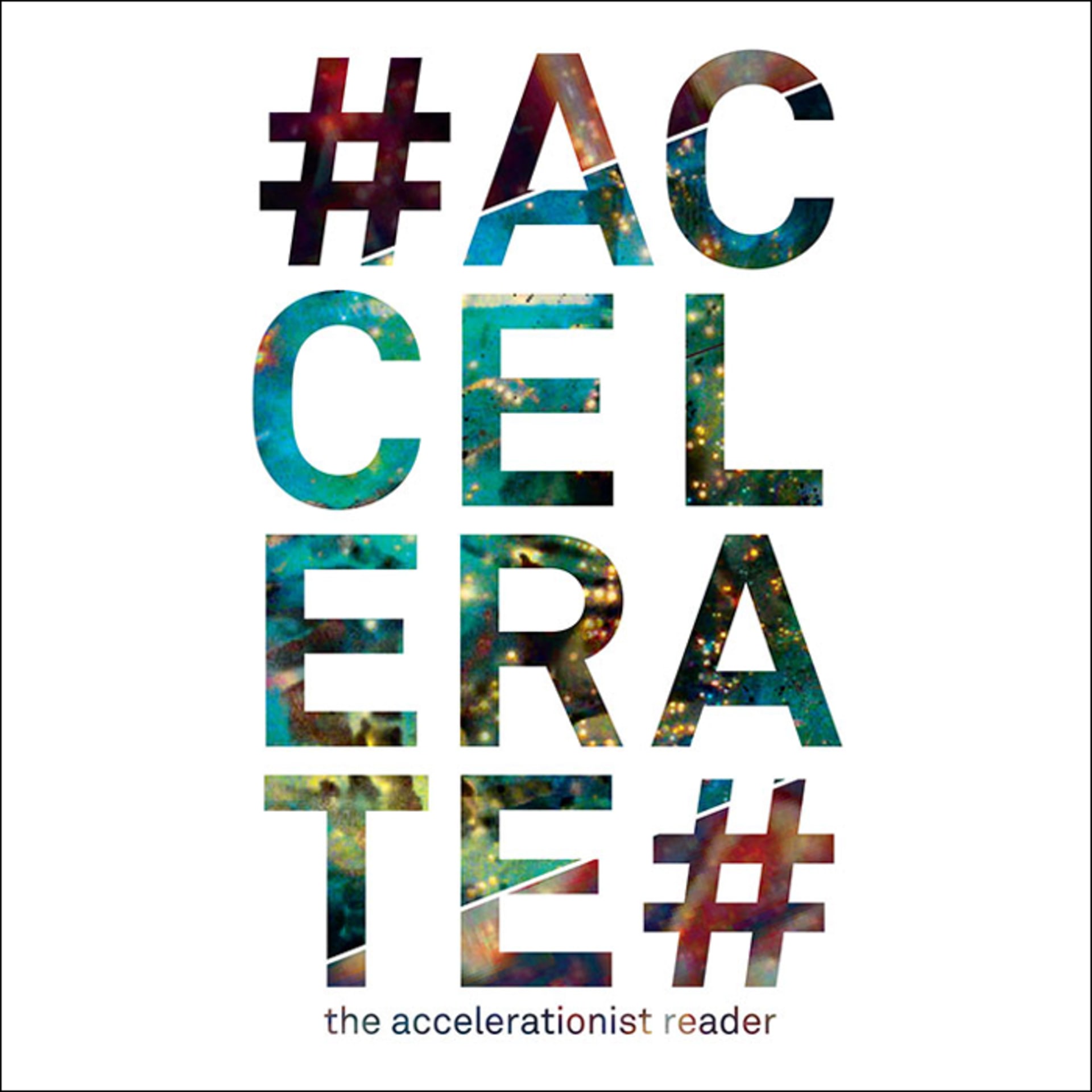
Heatsick Recommends Urbanomic’s #ACCELERATE Reader
As a musician, Heatsick pushes the humble Casio keyboard to its logical conclusion. The Accelerationist Reader from English publishing house Urbanomic pushes capitalism in a similar way.
To offer a brief and very broad definition: accelerationism is the idea that radical change in a global capitalist system can only be generated by accelerating the system’s self-destructive tendencies. At the recent book launch held in the Pro QM bookstore in Berlin for the compendium #ACCELERATE, its British publisher and editor, Robin Mackay, explained his initial hesitance of turning recent strands of accelerationism into a mere buzzword.
Having previously documented emerging perspectives on accelerationism and what became known as “speculative realism” in his Collapse journal, Mackay explained the potential pitfalls of philosophies being hijacked. This has been particularly evident in the cartoonish path of speculative realism—a philosophy popularized by a former sports journalist that rejects the privileging of human thought over that of other entities. It was also the source of many an artwork depicting the secret sentient life of random objects and anonymous materials.
However, being of the mindset that someone will inevitably publish a book on accelerationism, Mackay decided he would rather it be him. Accelerationist ideology in action! #ACCELERATE documents the philosophy’s genesis in Marx, charting its course through the disillusionment of various post-’68 French philosophers, though philosophers Gilles Deleuze and Félix Guattari are, in a sense, accelerationism’s first real torch bearers. In their attempt to rethink the most effective forms of changing capitalism, they came to question the notion of revolution: “But what is the revolutionary path? Is there one? To withdraw from the world market . . . or might it be to go in the opposite direction? Not to withdraw from the process, but to go further, to ‘accelerate’ the process.’”
Moving forward to the nineties, #ACCELERATE goes on to highlight the key role of technology in the grand scheme of capitalism’s collapse as conceived by the Cybernetic Culture Research Unit at Warwick University. CCRU was founded by Sadie Plant and Nick Land and attended by the likes of Hyperdub label founder and musician Steve Goodman (AKA Kode9), Mark Fisher, and Kodwo Eshun from the Otolith Group, amongst others. As activists, they were key components in investigating the surprising ways in which music, culture, technology and capitalism intersect.
Inspiring artists like Jake and Dinos Chapman and Russell Haswell, the group were also the first to discuss the then nascent drum and bass scene. But they included at least two opposing visions of accelerationism: While Nick Land is interested in speeding up capitalist flows, philosopher and music journalist Mark Fisher points out how technological development can paradoxically deliver inertia and stasis. As a consequence this has led to efforts to define acceleration not in terms of speed, but rather, as rate of change. As Fisher argues, tech visionaries like Bill Gates promise business at the speed of thought, but what capitalism delivers is thought at the speed of business.
Fisher’s essay “Terminator vs. Avatar” is a highlight of #ACCELERATE. It describes how the tech-dystopia of Terminator—a popular accelerationist reference point—has been replaced by the primitivist yearnings of Avatar, which we could also find today in, say, slow food restaurants. Paradoxically, it is precisely the 3D technology in Avatar that allows the viewer to connect with some fantasy of “back to the land” primitivism. A parallel can be drawn with the imagined history of the hippies retreating or “dropping out” from society, while in fact being all along fully integrated with military intelligence practices and streamlining neo-liberal labor structures, as Fred Turner later argues in his essay “From Counterculture to Cyberculture.”
Finally, as Nick Srnicek and Alex Williams, authors of “#Accelerate: Manifesto for an Accelerationist Politics” point out, technocracy is not the path to utopia. Patricia Reed also summarises the potential pitfalls of even using the #accelerate tag stating how in today’s climate of self branding, manifestos now come pre-hashtagged, forecasting their own viral uptake. Reed imagines the speed of capitalism metaphorically as a spinning amusement park ride, with bodies immovably glued to the edge, whirling nauseatingly fast, but not moving an inch. But when will they become unhinged?
When reading through #ACCELERATE, a song constantly seems to be playing in my head. “It’s Not Right but It’s Okay” by Whitney Houston, the UK garage remix.
This article originally appeared in the Winter 2014/2015 issue of Electronic Beats Magazine. To read more from this issue, click here.
Published March 11, 2015. Words by heatsick.
